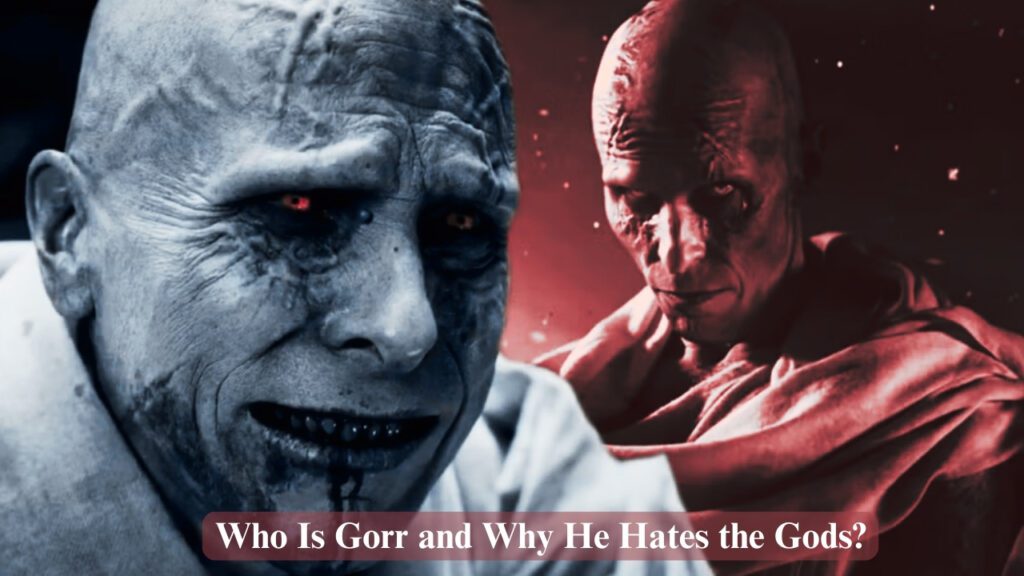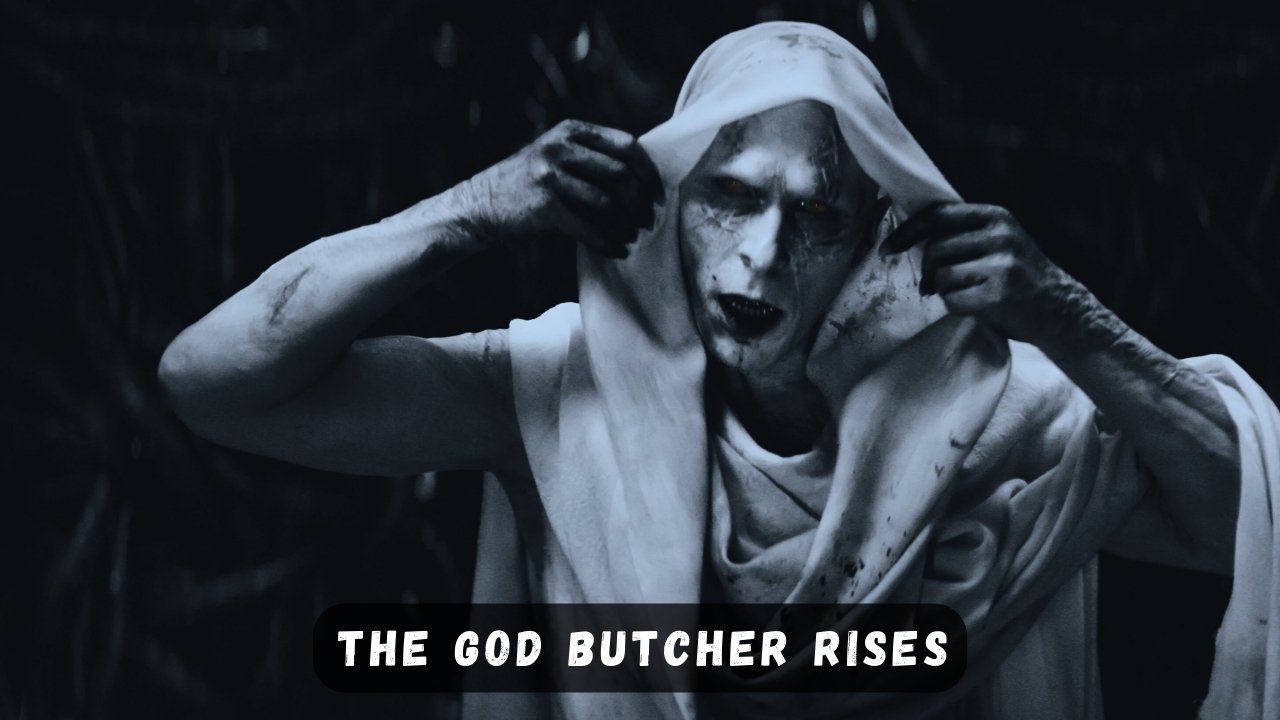Hey Marvel fans! If you’ve recently watched Thor: Love and Thunder or even heard the buzz surrounding it, then you already know about one of the MCU’s most unforgettable villains: Gorr the God Butcher. Unlike typical antagonists who crave power or dominance, Gorr’s story cuts much deeper. His tale is rooted in heartbreak, betrayal, and a devastating loss of faith — making him one of the most layered villains we’ve ever seen in Marvel.
Today, let’s explore Gorr’s origins, why he despises gods so fiercely, and how his character reshapes the way we view divinity in the MCU.
Gorr’s Origins: A Life of Pain and Broken Promises
Gorr’s tragic journey begins on a desolate, dying planet. The inhabitants lived in perpetual hardship — battling famine, thirst, and unforgiving natural conditions. Despite their suffering, their faith in the gods never wavered. Belief in divine rescue was the only thing that kept their spirits alive.
Young Gorr grew up clinging to that faith. His entire world revolved around the idea that the gods would one day save them. But as he matured, reality delivered blow after blow. His parents perished early in his life. He then lost his partner, Arra, to their planet’s brutal conditions. The final, soul-crushing tragedy came when his last surviving child, Agar, died in his arms despite Gorr’s desperate prayers for divine help.
No god answered. No savior appeared. The silence of the gods shattered Gorr’s faith. His grief turned to anger, and anger grew into a hatred so deep it would consume his very soul.
The Turning Point: When Gorr Met the Gods

One fateful day, wandering aimlessly through the desert, Gorr stumbled upon a scene that would forever alter his destiny: two gods locked in battle. One of them lay wounded, pleading for aid. This moment destroyed any lingering belief Gorr had.
Here were the gods—beings powerful enough to answer his prayers—fighting their own petty wars while mortals like him suffered and died unseen. Gorr’s rage boiled over. He killed the wounded god, and in doing so, claimed a weapon that would change everything: the All-Black Necrosword.
The All-Black Necrosword: A Curse and a Gift
The All-Black Necrosword wasn’t just any blade; it was forged by Knull, the primordial god of darkness and creator of the symbiotes (yes, connected to Venom!). This living weapon bonded with Gorr, granting him terrifying powers:
Superhuman strength and speed
Mastery of darkness and shadows
The ability to summon monstrous creatures called Black Berserkers
Rapid healing and near-immortality
But this power came at a cost. The Necrosword’s dark influence amplified his anger, twisting his pain into an unstoppable obsession: the eradication of all gods.
The Birth of the God Butcher
With his newfound strength, Gorr embarked on his infamous god-killing crusade. He traveled from world to world, hunting deities of every pantheon. No god was too powerful or too obscure to escape his wrath.
Yet, unlike many MCU villains, Gorr wasn’t after wealth or conquest. His mission was almost ideological. To him, gods were parasites—feeding off the faith of their followers while offering nothing in return. Killing them wasn’t just revenge; it was, in his mind, justice.
Civilizations crumbled as their divine protectors fell. Panic and despair spread across galaxies. Even the gods themselves whispered Gorr’s name in fear.
A Villain Driven by Pain, Not Power
What makes Gorr so compelling is how deeply personal his motives are. He isn’t evil for evil’s sake. He’s the embodiment of betrayal and grief—someone who once believed wholeheartedly, only to be abandoned in his darkest hour.
His transformation from a grieving father to the God Butcher feels tragically human. He’s not simply a monster; he’s what happens when hope dies and pain is left unchecked. That nuance is why many fans view him less as a villain and more as a tragic antihero.
Gorr and His Daughter: Love Amidst Darkness
One of the most poignant elements in Thor: Love and Thunder is Gorr’s bond with his daughter, Love. Even though the Necrosword corrupts him, his affection for his child remains genuine.
His love for her adds heartbreaking depth to his character. He’s not just slaughtering gods out of spite—he’s trying, in his twisted way, to create a world where she won’t suffer as he did. This emotional layer humanizes him, reminding us that beneath the vengeance is a father’s desperate heart.
In fact, it’s Love who ultimately redeems him, pulling him back from the brink in his final moments.
Gorr vs. Thor: More Than Just a Fight
The conflict between Thor and Gorr isn’t purely physical—it’s philosophical. Thor still believes in gods as protectors and figures of hope. Gorr, on the other hand, is living proof of divine neglect and cruelty.
Their clash embodies two opposing worldviews:
Thor’s belief in duty and redemption, versus
Gorr’s belief that gods are inherently corrupt and unworthy.
This ideological duel gives their battle emotional weight. It’s not just hammer versus sword; it’s faith versus disillusionment.
The Black Berserkers: Gorr’s Shadow Army
Alongside Gorr’s terrifying presence is his army of Black Berserkers, shadow-born creatures forged by the Necrosword. These beasts are nearly indestructible and serve as extensions of Gorr’s will, spreading his terror across countless worlds.
Their introduction in Love and Thunder adds horror elements to the story, making Gorr’s threat feel all the more unstoppable.
Why Fans Connect With Gorr
Gorr resonates with audiences because his pain is relatable on a universal level. Who hasn’t felt let down by something they trusted? Whether it’s religion, leadership, or even personal relationships, that sense of betrayal can leave lasting scars.
Through Gorr, Marvel explores heavy questions:
What happens when faith is broken?
Are those we idolize truly worthy of our devotion?
How far can grief drive someone before they lose themselves?
These are big, human themes wrapped in the skin of a cosmic villain story.
The Legacy of Gorr in the MCU
By the end of Thor: Love and Thunder, Gorr’s story reaches a bittersweet conclusion. He abandons his vendetta to save his daughter, leaving behind a complex legacy.
His actions, however, raise lasting questions within the MCU about the nature of gods and their responsibilities. Future stories could easily revisit the themes he represents, especially as Thor now raises Love—Gorr’s daughter—as his own.
Final Thoughts: A Villain Who Makes Us Think
By the end of Thor: Love and Thunder, Gorr’s story feels both concluded and open-ended. He finds a kind of redemption through his daughter, and his crusade against gods comes to a head.
But the idea of gods being fallible, indifferent, or corrupt will linger in the MCU. And Gorr’s actions have set the stage for future stories where gods and heroes will have to answer for their roles in the universe.
Final Thoughts
Gorr the God Butcher isn’t your standard Marvel antagonist. He’s tragic, terrifying, and thought-provoking all at once. His story forces both Thor and the audience to confront difficult truths about faith, pain, and what it really means to hold power over others.
Christian Bale’s performance brought raw emotion and gravitas to the role, making Gorr unforgettable. He’s not just a villain you fear—he’s one you understand, even if you don’t agree with him.
If you haven’t seen Thor: Love and Thunder yet, Gorr alone makes it worth watching. His character isn’t just part of the action; he’s the emotional core of the entire film.
Thanks for reading! If you liked this deep dive into Gorr;s the God Butcher, stay tuned for more breakdowns of Thor: Love and Thunder and other Marvel adventures. Don’t forget to share your thoughts on Gorr’s — do you see him as a villain, a victim, or something in between?




